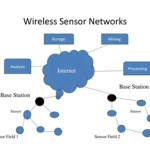Farm to Fork Food Delivery: Essential Aspects for Enhancing the Food System
Farm to fork food delivery is an essential aspect of a sustainable and healthy food system. It enables consumers to access fresh, locally produced food while supporting local farmers and businesses. Understanding the essential aspects of farm to fork food delivery is crucial for ensuring that the system operates effectively and benefits all stakeholders. This article explores the key aspects that contribute to the success of farm to fork food delivery initiatives.
## Essential Aspects of Farm to Fork Food Delivery1. Producer Engagement:
Engaging local producers is fundamental to the viability of farm to fork food delivery. Building strong relationships with farmers, ranchers, and other food producers ensures a consistent supply of high-quality food. Cultivating these partnerships fosters a sense of community and support for local agriculture.
2. Distribution and Logistics:
Efficient distribution and logistics are critical for delivering fresh food from farms to consumers. Establishing reliable transportation networks, optimizing delivery routes, and ensuring proper handling and temperature control are essential for maintaining the quality and freshness of food products.
3. Consumer Access:
Farm to fork food delivery should be accessible to all consumers, regardless of their location or socioeconomic status. Exploring diverse delivery models, such as mobile markets, community-supported agriculture (CSA) programs, and online platforms, can increase the reach of farm to fork food delivery initiatives.
4. Sustainability:
Farm to fork food delivery should prioritize sustainability throughout the supply chain. Reducing food waste through efficient inventory management, minimizing packaging and transportation emissions, and promoting sustainable farming practices contribute to the long-term viability of the system.
5. Economic Viability:
Economic viability is essential for the long-term success of farm to fork food delivery. Establishing fair pricing mechanisms that compensate producers fairly, covering operational costs, and exploring innovative revenue streams ensure the financial sustainability of the initiative.
6. Communication and Transparency:
Clear communication and transparency are vital for building consumer trust. Providing information about the origin of food, production methods, and delivery practices increases consumer awareness and fosters a connection between producers and consumers.
## ConclusionFarm to fork food delivery plays an integral role in creating a more sustainable, healthy, and equitable food system. By focusing on the essential aspects explored in this article, stakeholders can enhance the effectiveness of farm to fork food delivery initiatives, leading to improved food access, economic vitality, and environmental well-being. Continued collaboration and innovation in these areas will further strengthen the farm to fork food delivery system, benefiting both consumers and producers.

Farm To Fork Meals Fresh Meal Delivery

Made To Order Organic Meals Farm Fork

Farm To Fork Meals

Farm To Fork Meals 44 Photos 156 Ne 29th St Miami Florida Food Delivery Services Restaurant Reviews Phone Number Yelp

Farm To Fork 8839 Cowenton Ave Toast

Farm To Fork New Approach Food Safety Cold Chain Management Procuro

From Farm To Fork Journey Through Food Safety Cole Parmer

Order Farm 2 Fork Nashville Tn Menu Delivery S Doordash

Rosemarys Farm To Fork Paleo Organic Meal Prep Restaurant Delivery

Farm To Fork 716 Partners With Local Restaurants Create Meal Kits Wgrz Com








